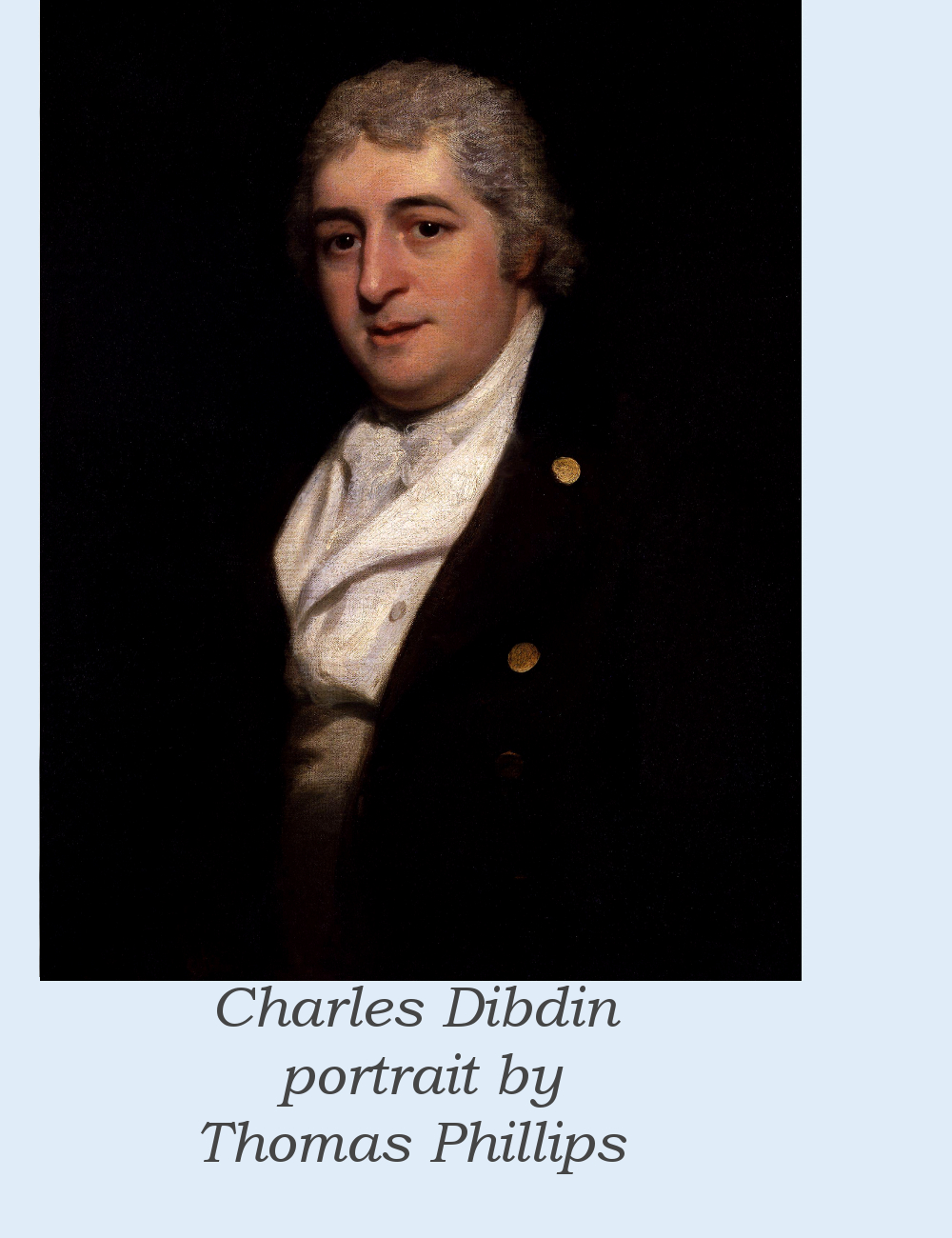
Charles Dibdin
 Biography
BiographyCharles Dibdin (March 4, 1745–July 25, 1814) was an English composer, musician, dramatist, novelist, singer and actor. With over 600 songs to his name, for many of which he wrote both the lyrics and the music and performed them himself, he was in his time the most prolific English singer-songwriter. He is best known as the composer of “Tom Bowling,” one of his many sea songs. He also wrote about 30 dramatic pieces, including the operas The Waterman and The Quaker, and several novels, memoirs and histories. His works were admired by Haydn and Beethoven.
The son of a silversmith, Dibdin is described as the youngest child of eighteen born to a 50-year-old mother. His parents, intending him for the clergy, sent Dibdin to Winchester College, but his love of music soon diverted his thoughts from the clerical profession. He possessed “a remarkable good voice” at a young age and was in demand for concerts even as a boy. Anthems were composed for him by James Kent and his successor Peter Fussell, organists of Winchester Cathedral. He went to London at the age of fifteen at his brother’s invitation and was first employed tuning harpsichords in a music warehouse in Cheapside. He was soon introduced to John Rich (of whom he became a favourite) and John Beard, and growing addicted to theatre-going soon became a singing actor at Theatre Royal, Covent Garden.
Dibdin’s patriotic sea songs and their melodious refrains powerfully influenced the national spirit and were officially appropriated to the use of the British navy during the war with France. They were not shanties or working songs but rather a form of distinctively English ballad combining the tonality of the hornpipe with vivid if sentimentalized depictions of the comradeship, the separations from love, the simple patriotism, loyalty and manly courage of “Tom,” England’s Jack Tar. In 1803 he was induced by Pitt’s government, with a pension of £200 a year (equivalent to £23,100 in 2023), to abandon provincial engagements to compose and sing “War Songs” to keep up the ferment of popular feeling against France. This was withdrawn for a time under the administration of Lord Grenville but afterwards partly restored.
Bibliography (wildly incomplete)
The Devil (novel, 1785)
Musical Tour through England (non-fiction, 1788)
Hannah Hewitt (novel, 1792)
The Younger Brother (novel, 1793)
Complete History of the British Stage (non-fiction, 1795)
Professional Life (autobiography, 1803)
Henry Hooka (novel, 1806)
Songs of Charles Dibdin (1842)
Other links
Britannica
Contemplator’s Folk Music Site
Wikipedia